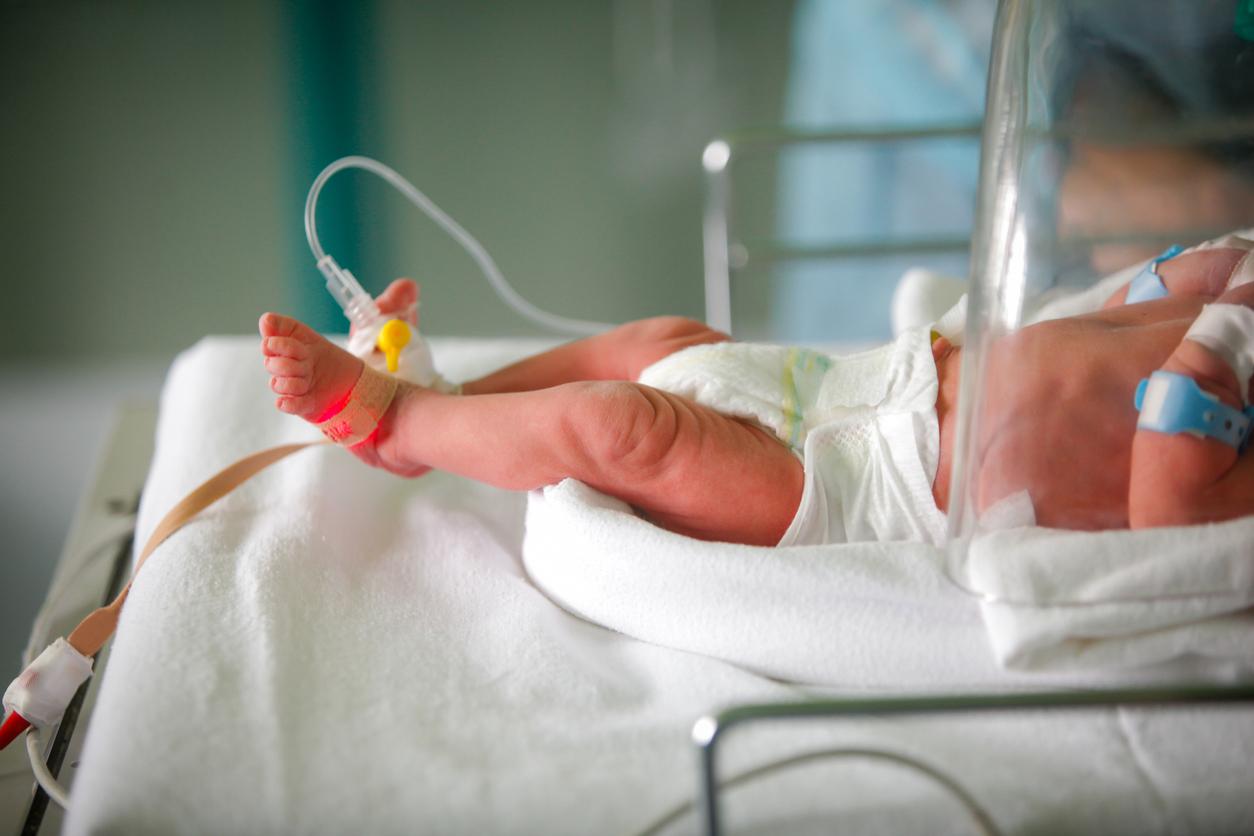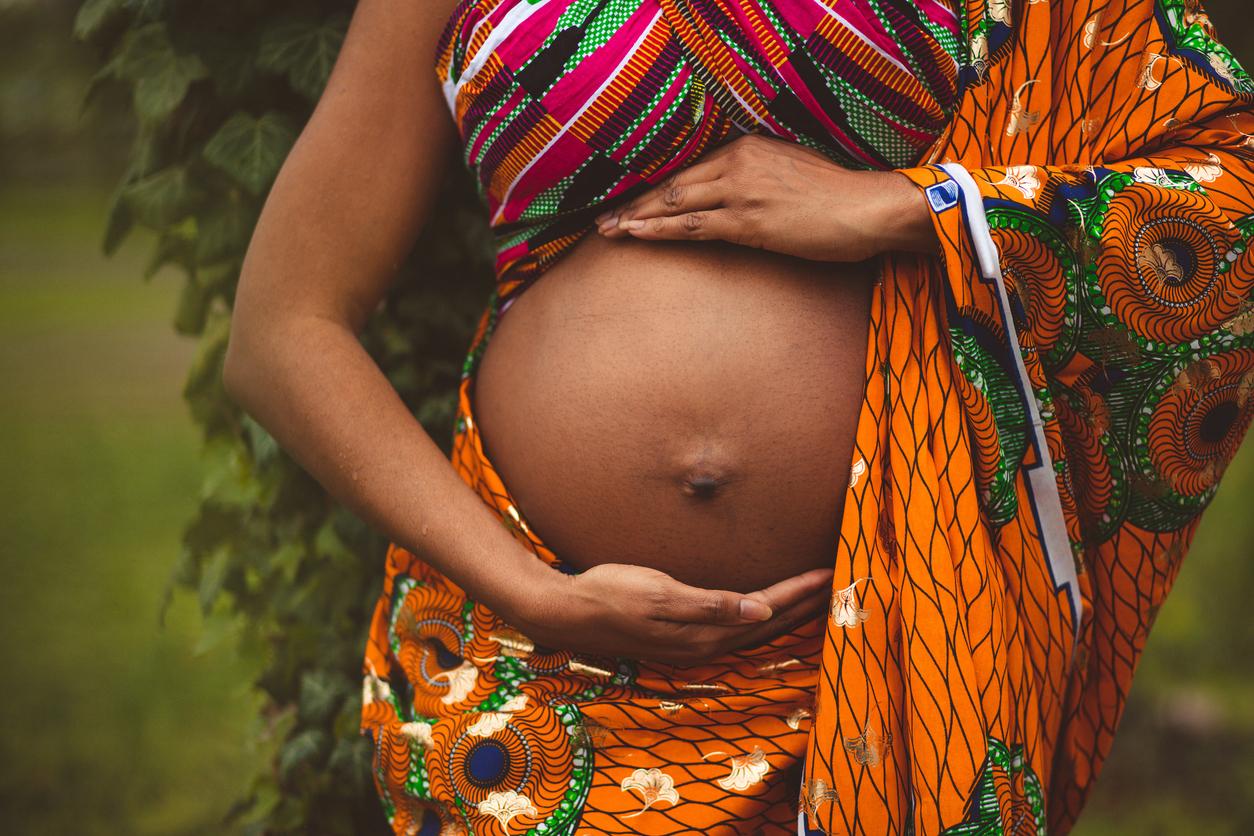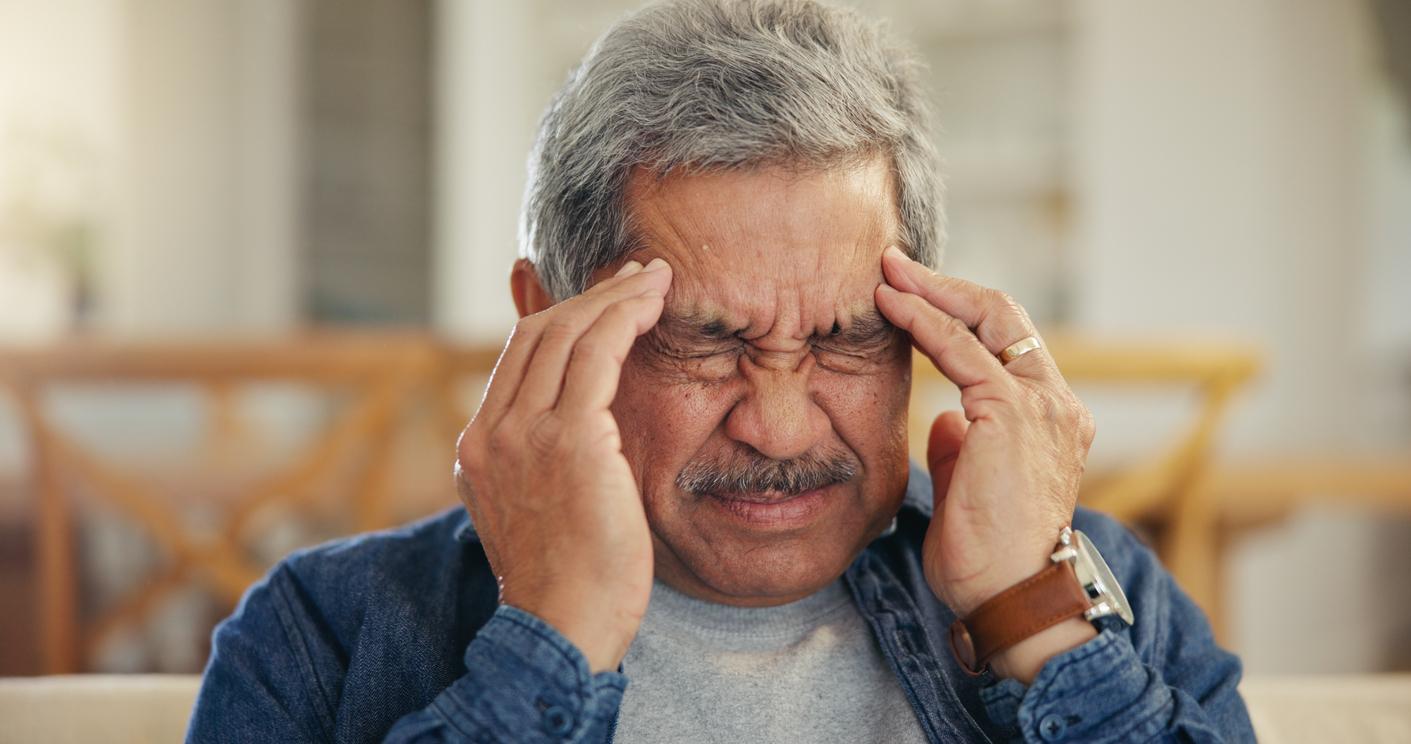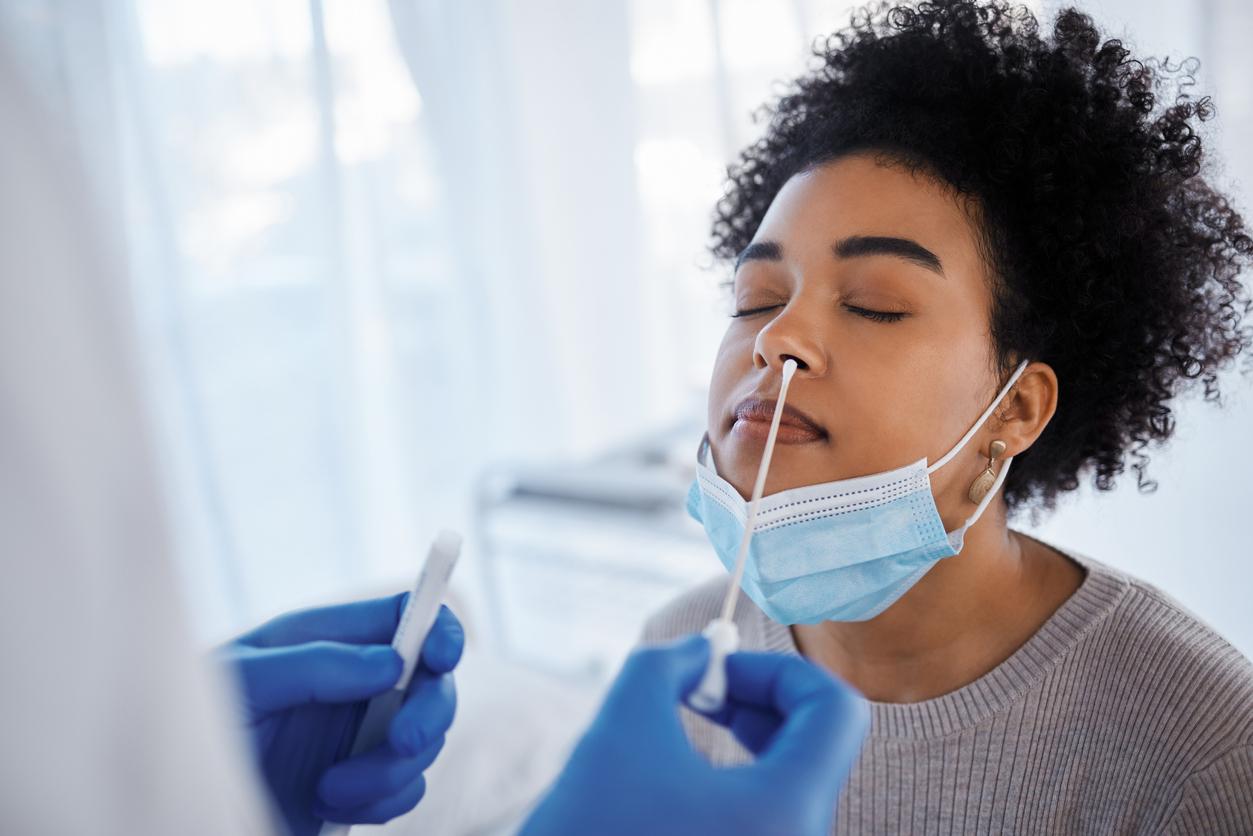A new study led by the University of California, Los Angeles (UCLA) finds that infants born to mothers infected with Covid-19 during pregnancy are three times more likely to develop respiratory distress than other babies.

- Full-term babies born to mothers infected with Covid-19 during pregnancy are more likely to suffer from respiratory distress than unexposed infants.
- This increases their risk by three.
- For researchers, in utero exposure to SARS-CoV-2 triggers an “inflammatory cascade” in infants, disrupting lung development. Which increases the risk of respiratory problems.
Covid-19 appears to have repercussions on the health of infants whose mothers infected with SARS-CoV-2 during pregnancy, even if the virus has not reached the fetus. A study from the University of California The bone Angeles, featured in the magazine Nature Communicationsreveals that they are three times more likely to suffer from respiratory distress than babies not exposed to Covid-19 during pregnancy.
Covid-19: babies exposed to the virus have an increased risk of respiratory distress
For this research on the consequences of Covid-19 infection in pregnant women, researchers followed 221 mothers who contracted SARS-CoV-2 during their pregnancy. Analyzes show that 34 of the 199 infants exposed to the virus had respiratory problems. “Which is a very high frequency, because in the general unexposed population, respiratory distress only occurs in 5 to 6 % of the babies”, note the scientists.
In addition, it was found that 21% of infants suffering from respiratory distress were born to mothers with a severe or critical form of Covid-19. In comparison, only 6% of babies without respiratory distress were born to women with severe illness.
“We saw unusually high rates of respiratory distress shortly after birth in babies born at term to mothers who had Covid-19 during pregnancy”explained lead author Dr. Karin Nielsen, professor of pediatrics in the division of pediatric infectious diseases at theUCLA in a statement.
Respiratory distress in infants: what is the cause?
During their work, scientists argue that exposure in utero to SARS-CoV-2 triggered an inflammatory cascade in infants, increasing their risk of respiratory disorders. By examining babies affected by respiratory disorders, the team found that their vibrating cilia, which are responsible for clearing mucus from the airways, were not functioning normally. In addition, they had a higher production of antibodies called immunoglobulin E. These are associated with atopic diseases, such as allergic rhinitis or even asthma.
“Not only do our results show higher rates of respiratory distress in infants exposed to SARS-CoV-2, but not infected compared to the general population, add the researchers, but we also observed more cases of respiratory distress at a later gestational age than expected, while newborns are likely to have more mature lung anatomy.”

Covid-19 and respiratory distress: the vaccine protects
The results highlight another point: prior vaccination of mothers has a protective effect. Only 5 of the 34 infants with respiratory distress were born to women who had been vaccinated before infection. The researchers add that even one dose of mRNA vaccine before infection significantly reduced the risk of a full-term infant developing respiratory distress.

















